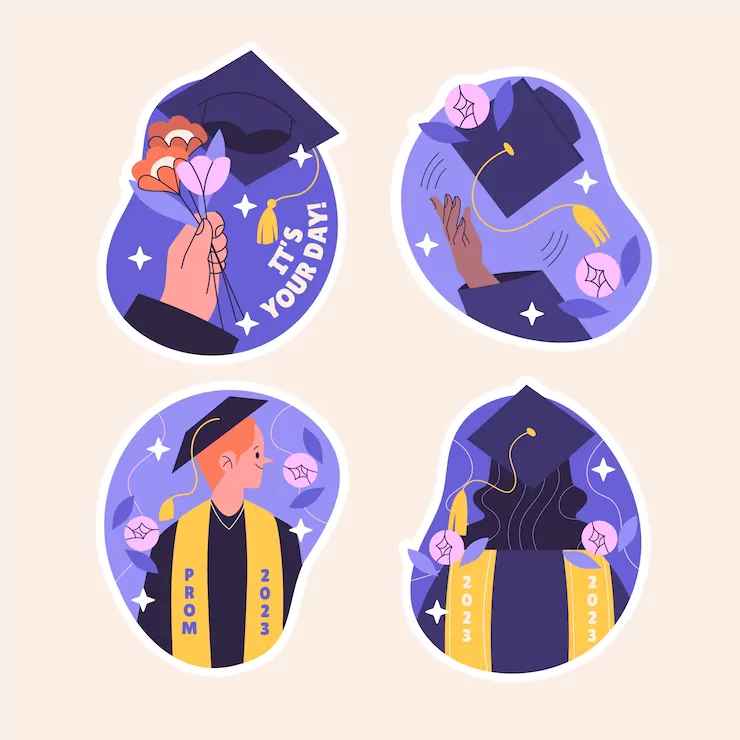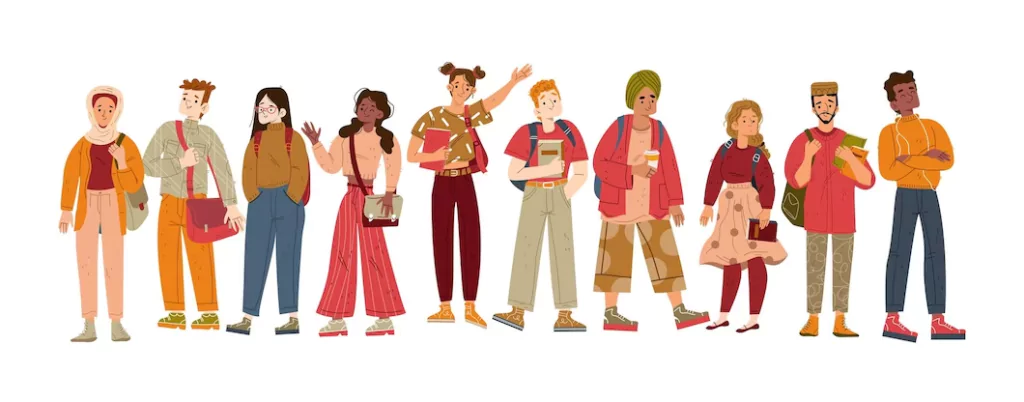In an unusual account of college admission, a student named Jason Richards has shared a startling story about the extraordinary measures to secure a place in a dream university.

✅ AI Essay Writer ✅ AI Detector ✅ Plagchecker ✅ Paraphraser
✅ Summarizer ✅ Citation Generator
Richards asked the online community about the wildest things they or someone they know have done to earn admission into their first-choice school. His aim was to uncover the extent of ‘admission insanity’ – the lengths to which applicants go to secure a college place.
As responses flooded in, it became clear that the pressures of college admissions can sometimes lead to unexpected and extraordinary tactics. From endless preparation for entrance exams to crafting uniquely creative application essays, the strategies were diverse.
Did these drastic measures pay off? Richards didn’t disclose specific outcomes, leaving the effectiveness of such strategies up for debate. This candid conversation adds another perspective to the discourse on the intense competition of college admissions, prompting reflection on the lengths some are willing to go for their dream education.

Key Takeaways:
- The pressure of college admissions can lead to unethical tactics, including misusing diagnoses and misrepresenting identities.
- Misuse of diversity and accommodation provisions complicates the process for genuinely deserving candidates and undermines the goal of inclusivity.
- Wealth and power can influence admissions decisions, highlighting potential inequities in the process.
Privileged Strategies
In a startling thread on a popular discussion platform, users recently shared stories and anecdotes from their high school experiences, shining a light on questionable practices leveraged for gaining college admissions. These range from misuse of ADHD and anxiety diagnoses to misrepresenting ethnic background and sexual orientation.
As one participant observed, “A lot of kids got fake ADHD/anxiety diagnoses to get extended time on quizzes and tests.” Such accommodations were reportedly prevalent, with an estimated five students in every class of about thirty receiving such extensions.
Another troubling trend is the potential inflation of racial or ethnic identities for obtaining advantages. One user described a peer who claimed Hispanic heritage to secure a national merit award, despite no apparent Hispanic ancestry.
The stories also highlighted the creation of non-existent organizations and startups to pad resumes. One user reported a student falsely claiming to be a polyglot for Ivy League applications, using minimal foreign language exposure to inflate his linguistic abilities.
The Dark Side of Diversity
While diversity and inclusion are crucial, the discussion revealed instances where these values were exploited. An unsettling account detailed a high school student who allegedly lied about being Native American and lesbian to secure admissions to NYU and Cornell. The same student reportedly paid someone to write her application essays and even planned to deceive classmates by purchasing honorary graduation cords.
A similar case was reported where a student loosely tied to Native American heritage allegedly exaggerated his ethnic struggle in a diversity essay. Such practices raise questions about the authenticity of some diversity statements.

Unfair Disadvantage for the Truly Deserving
The discussion raised concerns about the potential harm to those genuinely requiring accommodations. One user expressed frustration at the additional obstacles faced in explaining their dyslexia due to false diagnoses. Another shared the emotional impact of witnessing her son’s struggles, worsened by skepticism due to fraudulent cases.
Such fraudulent actions can inadvertently penalize students with real needs, painting a bleak picture of the competitive and often ruthless landscape of college admissions.
Influence of Wealth and Power
Wealth also emerged as a significant player. One user described a fellow student making hefty donations and giving expensive gifts to secure admission to Harvard, despite mediocre academic credentials. This underscores the potential inequities in the admissions process.
Clubs Galore
A proliferation of clubs, particularly in the field of computer science, was noted as a common strategy to embellish applications, often with limited actual engagement or contribution.
The discussion threads reveal a disturbing underside to college admissions, raising questions about the effectiveness of current processes in promoting true merit, diversity, and inclusivity. As one commentator put it, these malingerers are “like able-bodied people taking all the disabled parking spots.” It’s a stark reminder of the lengths some will go to secure a coveted college place.
But students should not risk it all if something does not go according to their plan. It is fine to make new dreams as live goes.
How I Overcame College Admission Rejections and Found My Dream School
A common theme in college admissions is the disappointment of rejection, often followed by a triumphant recovery. This was the case for Jessica Green, a high school senior from Ohio, who was initially devastated after a series of college rejection letters. Despite having a good GPA and extracurricular activities, her top choices didn’t offer her a place. Instead of letting these setbacks define her journey, Jessica decided to view them as an opportunity to reassess her options and priorities.
Rather than chasing prestige, she shifted her focus to finding a school that offered the right environment, resources, and programs to match her academic interests and career goals. This led her to a smaller, lesser-known university with an excellent reputation in her desired field of study.
The rejection letters turned out to be a blessing in disguise. At her chosen university, she found smaller class sizes, approachable professors, and ample opportunities for research and internships that a larger, more competitive school might not have offered.
Jessica’s journey is a powerful reminder that the dream school might not be the one with the most renown or the highest rankings, but rather the one that offers the best fit for an individual’s unique needs and aspirations. Her story demonstrates that initial setbacks can be valuable detours leading to more suitable destinations.
Read more:
Japan’s University Enrollment Crisis: A Harbinger of Challenges for the US Higher Education System
Shifting Job Market: College Grads Navigate from Tech to Other Thriving Industries
Top Regrets from the College Application Process: Learning from Others’ Mistakes
Follow us on Reddit for more insights and updates.





Comments (0)
Welcome to A*Help comments!
We’re all about debate and discussion at A*Help.
We value the diverse opinions of users, so you may find points of view that you don’t agree with. And that’s cool. However, there are certain things we’re not OK with: attempts to manipulate our data in any way, for example, or the posting of discriminative, offensive, hateful, or disparaging material.